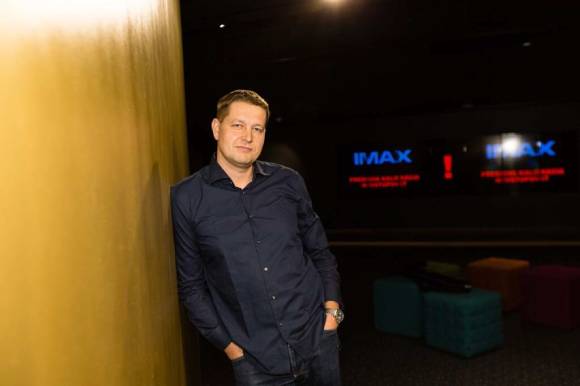 FNE: What needs to be done for cinemas to recover after being closed for nearly a year and what support do you need from the government?
FNE: What needs to be done for cinemas to recover after being closed for nearly a year and what support do you need from the government?
Michal Drobný: The state support is crucial in our country, like in other segments so significantly affected by the pandemic. The currently approved aid ceiling in Slovakia is 800,000 EUR and it is insufficient for a company of our size. Our uncovered costs exceed 3.5 m EUR. We hope that the state will reflect on other amounts of aid that have been approved by the European Commission and then better take into account the situation of many companies. We have never been in such a situation before and we cannot deal with it by ourselves.
FNE: What help did you receive from the government during the time the cinemas were closed?
Michal Drobný: We received the same support as other employers: part of the wage costs and rental items were reimbursed. However, we had to continue to pay the rest of the rent and it was necessary to keep the cinemas in temporary operation due to the technology. The last closure alone lasted almost half a year, preceded by two waves in 2020, one in spring and one in autumn. Since then, the cinema industry has not managed to reach the pre-pandemic level. It takes time to gain back the audience's trust. Therefore, we still believe that all these facts will be taken into account by the state's assistance and will reach us to the necessary extent.
FNE: What strategy do you have to attract audiences back to cinemas now that they got used to watching films on VOD platforms?
Michal Drobný: The experience from abroad shows that the popularity of VOD does not necessarily have the significant impact on cinemas that many have feared. The audience expects a different type of experience from visiting the cinema, and we do everything to ensure that they receive the maximum technical quality and comfort they deserve in our facilities.
These days, CINEMAX is opening its fourteenth cinema in Slovakia and the first in the Czech Republic. In 2020 we opened a cinema in Romania. If we were worried about the future of the cinema industry, we would not invest in its development. However, it will be necessary to set up functional measures for possible further crises similar to the one we have just gone through.
FNE: How important are domestically produced films in your programme lineup? Do you programme any films from neighbouring countries, Hungary, the Czech Republic and Poland?
Michal Drobný: Slovak films are among the most popular and we are very pleased about that. Our domestic cinematography went through a period of hibernation at the turn of the millennium, but today it is in full force in the field of commercial and art film. If the pandemic had not closed cinemas, the Slovak film Scumbag / Sviňa directed by Mariana Čengel Solčanská and Rudolf Biermann, and coproduced by CinemArt SK, IN Film Praha and Magic Seven Slovakia, would most likely have exceeded 400,000 viewers in 2020, putting it in the second place among Slovak hits since the independence of our republic.
Many Czech films are also extremely popular, and this is related to the cultural proximity that we still have even after the division of the republics. Hungarian or Polish films appear less often in the offer of distributors, but we also show those and they definitely have their place in our programme.
FNE: Are there enough films available for your release schedule? Is there a logjam of domestic releases waiting or a shortage of domestic films?
Michal Drobný: There is no shortage of premiere titles. Many of them have pushed their world premieres to post-pandemic dates, in addition to others that have been created in the meantime. I think that a quality film summer awaits us throughout the second half of 2021. Slovak films or Slovak coproductions will definitely not be missing from the offer.
In July 2021, the viewers can expect the new title by Martin Šulík, Man with Hare Ears / Muž so zajačími ušami, produced by TITANIC s.r.o. and IN Film Praha in coproduction with RTVS and the Czech Television, and in autumn the war drama The Auschwitz Report / Správa by Petr Bebjak, produced by D.N.A. in coproduction with Agresywna Banda (Poland), Evolution Films (Czech Republic), Ostlicht Filmproduktion (Germany), RTVS, the Czech Television (Czech Republic) and TVP (Poland).
There are also several comedies ready, among them Known Unknown / Známi neznámi by Zuzana Marianková, produced by Wandal Production; the adaptation of a successful literary masterpiece Till the Summer Comes / V lete ti poviem ako sa mám by Marta Ferencová, produced by NUNEZ NFE in coproduction with TRINITY PICTURES; and the hit sequel The New Year´s Kiss / Šťastný nový rok by Jakub Kroner, produced by INOUT Studio. The maximum film experience in CINEMAX cinemas will come in large numbers in 2021.
The 2021 Year of Recovery for Film in Visegrad Countries (YR2021) project sponsored by the Visegrad Fund brings together filmmakers and cultural professionals across the V4 to cooperate in the recovery of the film industry, which has been badly damaged by the COVID pandemic, and to reconnect with cinema audiences across the region and across borders. We want to share the lessons learned about reaching audiences online and the advantages of hybrid events in creating new connections across the Visegrad region. Our partner for this in Slovakia is the Slovak Film Institute.



















